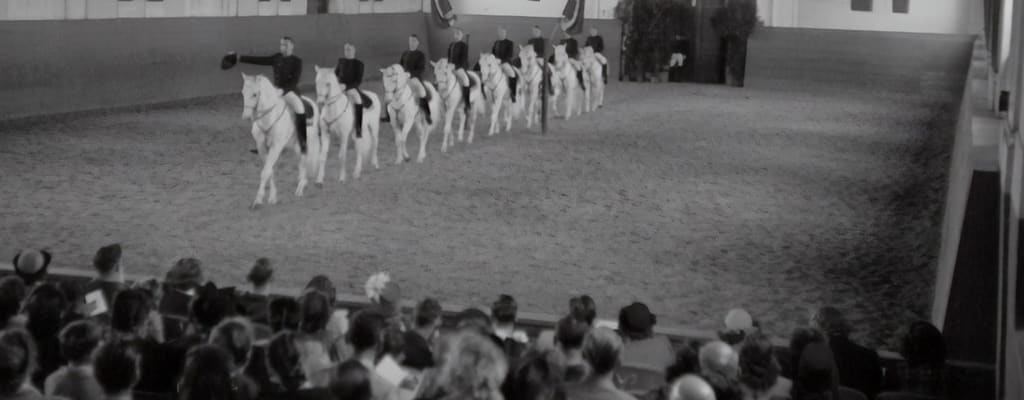gimme a five: Idiom Meaning and Origin
What does ‘gimme a five’ mean?
The idiom "gimme a five" is a casual request to have someone give a high five, a gesture where two people slap their open hands together above their heads. It is often used as a way to celebrate or show support.

Idiom Explorer
The idiom "two thumbs up" means to give a positive or favorable review or approval of something. It is often used to indicate strong support or enthusiasm for a person, idea, or product.
The idiom "here you go" is used when giving something to someone. It implies a gesture of offering or presenting an item or information to another person.
"Hands up" is an idiom that is commonly used as an imperative phrase to instruct someone to raise their hands. It may be used in various situations as a gesture of surrender, compliance, or to get someone's attention.
The idiom "give curry" typically means to scold or criticize someone harshly.
The idiom "give as good as one gets" means to respond with equal force or intensity when faced with aggression or criticism, not allowing oneself to be taken advantage of.
The idiom "give the elbow" means to reject, ignore, or dismiss someone or something. It conveys the idea of pushing someone away or keeping them at a distance, either physically or emotionally.
An idiom that signifies something or someone considered to be a great blessing or stroke of luck, often seen as a divine or fortunate occurrence.
The idiom "get together" means to meet or gather with someone or a group of people, typically for socializing or discussing something.
An idiom used to express frustration, shock, or annoyance, often in an exasperated or pleading tone.
Uncovering the Origins
Gimme a five is an idiom that comes from the slang expression "give me five." It's commonly used in the United States in informal settings to ask for a high-five, which is when two people slap their open hands together as a friendly gesture to celebrate or show agreement. The idiom became popular in the mid-20th century and is used in different situations to express camaraderie, support, or excitement.
The phrase "give me five" has its origins in African-American Vernacular English (AAVE) and first appeared in the early 20th century. It's believed to have its roots in jazz culture, specifically in the Harlem community of New York City. Originally, it referred to the act of slapping hands with another person to show mutual understanding or appreciation. It was a way of communicating positivity and building connections between people.
Over time, the idiom moved beyond jazz culture and became more mainstream during the 1970s. It started being used in a wider range of contexts, including sports, entertainment, and everyday interactions. "Gimme a five" or "give me five" became a popular phrase to ask for a high-five, adding a playful and friendly element to social encounters.
One related idiom that is commonly used alongside "gimme a five" is "hands up." This expression is often used to signal surrender or compliance, typically in situations involving law enforcement. However, in the context of "gimme a five," it can be used as a playful way to ask for a high-five. For example, someone may say, "Hands up! Gimme a five!" to request the gesture from another person.
The idiom "here you go" is another phrase that is related to "gimme a five." "Here you go" is often used when giving something to someone or offering assistance. In the context of a high-five, it can be used as a light-hearted way to acknowledge and reciprocate the gesture. For example, after someone extends their hand for a high-five, the other person can respond with "Here you go!" before slapping their hands together.
Another related idiom is "two thumbs up." This expression is used to indicate strong approval or endorsement. In the context of "gimme a five," it can be incorporated in conversations to emphasize the positive and celebratory nature of the high-five gesture. For example, someone may say, "Hey, that was a great performance! Gimme a five, two thumbs up!" as a way of expressing their admiration and support.
The phrase "five-finger discount" is also related to "gimme a five," but it carries a different connotation. "Five-finger discount" is a slang term that refers to shoplifting or stealing. It's important to note that this expression has negative connotations and should not be used casually or in a joking manner. It is unrelated to the positive and friendly nature of the high-five gesture associated with "gimme a five." It's best to avoid using "five-finger discount" in the same context as "gimme a five" to prevent any confusion or misinterpretation.
The use of the idiom "gimme a five" has become widespread and is easily recognizable in American popular culture. It's a way to celebrate achievements, greet someone in a friendly manner, or show support and encouragement. The idiom adds a lighthearted and positive tone to social interactions, making it a widely used and accessible expression.
While the exact details of how "give me five" transformed into "gimme a five" and its journey to widespread popularity remain somewhat unknown, the evolution of language and idiomatic expressions is a fascinating reflection of cultural dynamics and social interactions. "Gimme a five" serves as a testament to the power of language to create connections and convey shared experiences. It continues to be a symbol of friendship, agreement, and celebration, leaving room for further exploration and interpretation.
Example usage
Examples of how the idiom gimme a five can be used in a sentence:
- "Hey, good job on that presentation! Gimme a five!"
- "After scoring the winning goal, the coach ran up to her and said, 'Gimme a five, you're amazing!'"
- "Before they headed into the exam, the students huddled together and whispered, 'Gimme a five for good luck!'"
The idiomatic expression "gimme a five" is commonly used to request or celebrate a high-five. It is a casual and informal way of asking for someone to extend their hand for a celebratory hand-slap gesture. It can be used in various contexts to congratulate someone on an achievement, acknowledge a job well done, or simply to exchange a gesture of camaraderie or good luck.
More "Gesture" idioms



